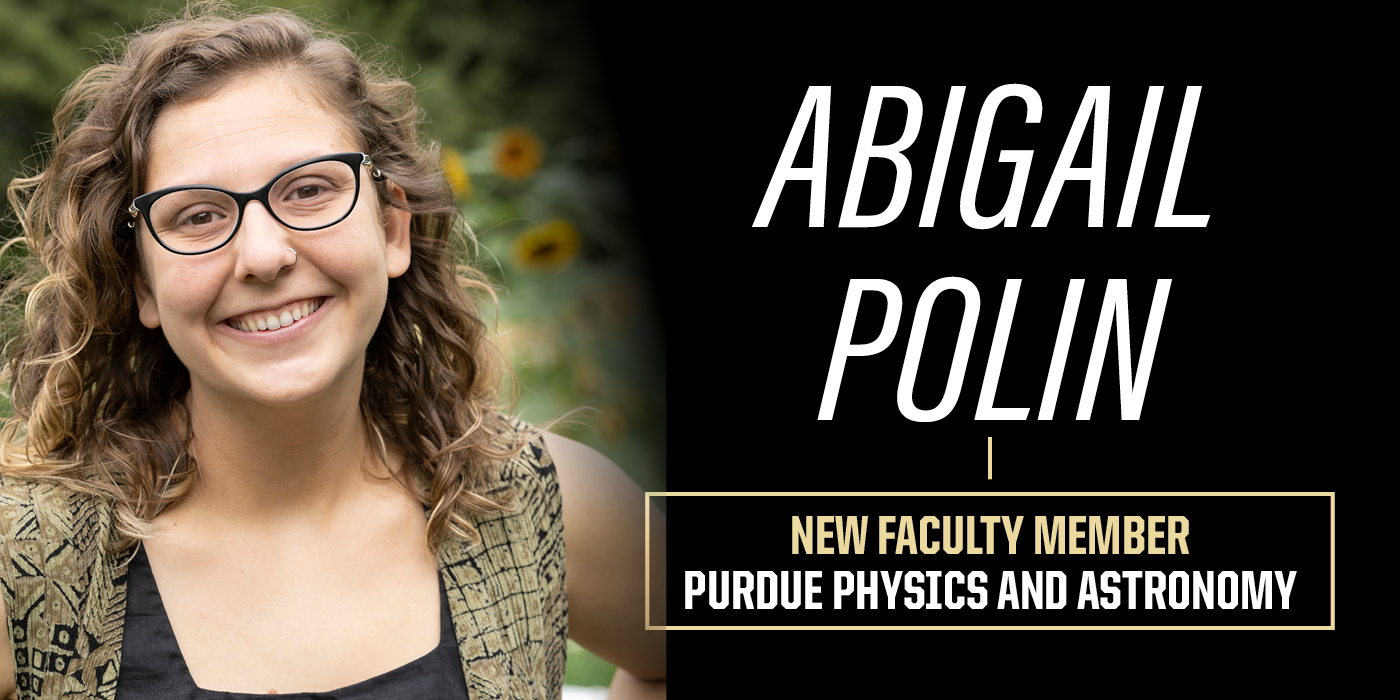Abigail Polin joins the faculty of the Department of Physics and Astronomy at Purdue University
2024-11-26

The Department of Physics and Astronomy at Purdue University welcomes a new member to the faculty, Abigail Polin, as Assistant Professor. Prof. Polin’s appointment started in August 2024.
Prof. Polin is a theoretical and computational astrophysicist. She creates hydrodynamical simulations to examine the theory behind astrophysical explosions, then performs radiative transport calculations to produce testable predictions that can be compared directly to observed data.
“My research spans the gamut of astrophysical transients," she says. "I employ a combination of analytic, numerical and high-performance computing techniques to study the physics driving astrophysical explosions and I specialize in connecting that theory to observed transient phenomena.”
Prior to her arrival at Purdue, Prof. Polin was a joint postdoctoral research fellow at Carnegie Observatories and Caltech. She earned a master’s and doctoral degree in physics from the University of California, Berkeley, where she worked with thesis advisors Peter Nugent and Dan Kasen. Prof. Polin earned her bachelor’s degree in physics from New York University.
In 2021, she was awarded the NERSC Early Career Award for high impact scientific achievement. She is also a Scialog Fellow.
Prof. Polin summarizes her teaching philosophy with three tenets. “First, students learn best through active participation and collaborative learning," she says. "Second, it is important for instructors to integrate technical skills such as computing and data analysis techniques throughout the curriculum. And third, physics is an inherently difficult subject, and students shouldn’t be expected to understand everything the first time they see it. Transparency as a teacher and a mentor is vital for student retention.”
Prof. Polin has taught multiple subjects in physics and astronomy, including high performance scientific computing, introductory mechanics, introduction to astrophysics and observational astronomy. She is looking forward to teaching graduate stellar evolution this spring.
About the Department of Physics and Astronomy at Purdue University
Purdue Department of Physics and Astronomy has a rich and long history dating back to 1904. Our faculty and students are exploring nature at all length scales, from the subatomic to the macroscopic and everything in between. With an excellent and diverse community of faculty, postdocs, and students who are pushing new scientific frontiers, we offer a dynamic learning environment, an inclusive research community, and an engaging network of scholars.
Physics and Astronomy is one of the seven departments within the Purdue University College of Science. World-class research is performed in astrophysics, atomic and molecular optics, accelerator mass spectrometry, biophysics, condensed matter physics, quantum information science, particle and nuclear physics. Our state-of-the-art facilities are in the Physics Building, but our researchers also engage in interdisciplinary work at Discovery Park District at Purdue, particularly the Birck Nanotechnology Center and the Bindley Bioscience Center. We also participate in global research including at the Large Hadron Collider at CERN, many national laboratories (such as Argonne National Laboratory, Brookhaven National Laboratory, Fermilab, Oak Ridge National Laboratory, the Stanford Linear Accelerator, etc.), the James Webb Space Telescope, and several observatories around the world.
Written by Andrew Robison, assistant department head of Purdue Physics and Astronomy